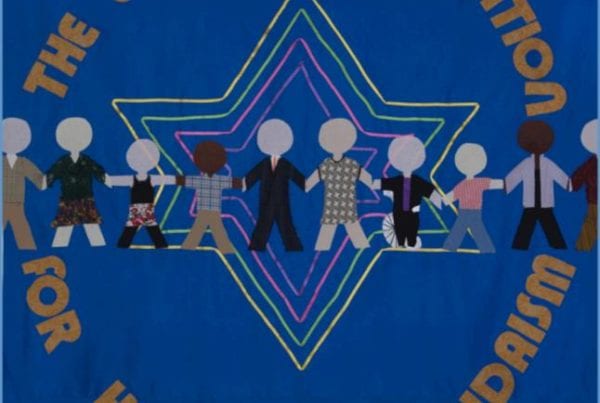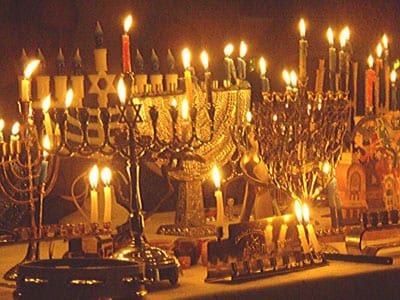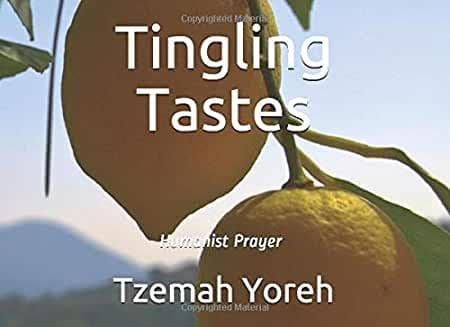SEARCHING FOR WISDOM:
An Examination of The Book of Ecclesiastes
Robert Liebeskind
Yom Kippur 2007
Good Morning. I want to thank Peter for inviting me to speak today. It is an honor to have been invited and to participate in today’s service. This begins my family’s second year as members of the Congregation and we have found our experience in the Congregation to be one of great value and pleasure.
This assignment has proven to be a very valuable experience for me, as it has forced me to think about my past, present and future, as well as others. It has helped me to evaluate life’s values, purpose and plan. I truly appreciate have being given this opportunity.
The cynical wisdom of Ecclesiastes appears to challenge the neat and tidy world of proverbial wisdom. If there is no ultimate purpose to life, then why should one care whether one is wise or foolish, righteous or wicked?
The author of this piece represents himself as the son of David and king over Israel in Jerusalem. The work seems to consist of personal or autobiographic matter, largely expressed in aphorisms and maxims illuminated in terse paragraphs with reflections on the meaning of life and the best way of life. The work emphatically proclaims all the actions of people to be inherently “vain”, “futile”, or “meaningless”, depending on translation, as the lives of both wise and foolish people end in death. While the teacher clearly promotes wisdom for the enjoyment of an earthly life, he is unable to ascribe eternal meaning to it. In light of this perceived senselessness, Ecclesiastes suggests that one should enjoy the simple pleasures of daily life, such as eating, drinking, and taking enjoyments in one’s wife and work, which are gifts from the hand of God.
I would like to suggest that as Humanists, people who care about society, others who live in our society and the well being of all, there is much more to life than is suggested in Ecclesiastes.
As participants in this Congregation, we are members of a Humanist orientation of ethical relationships, and as such we place faith in the demonstrated capacity of people to do wonderful things for each other. We stand for the worth and dignity of all people and, consequently, hold each life precious and are dedicated to bringing out the best in each other.
It is very important to me, and I would think all of us (you as well), to create meaning, a purpose for our life.
I think I do this by developing a strong sense of values to live by and practice. These values include how I think and care for others, how I view society, and how I live my daily life.
My life’s meaning becomes even stronger when I consider these values and work with my wife to pass these values on to our children. It has been very rewarding over the years to observe our children learning from these values, developing their own and then putting them into practice. As an example, it is very important to us to assist those in need, and it is essential that we pass this belief on to our children. We will hope they will gain a strong understanding of these important values, and not only practice them, as we believe they have been doing, but also pass them on to their children.
Clearly their lives have taken on a meaningful purpose as these values have been developed, practiced and shared with their peers.
Physicist David Bohm once said, “A society is a link of relationships among people and institutions, so that we can live together. But it only works if we have a culture – which implies that we share meaning; i.e., significance, purpose and value. Otherwise it falls apart.”
Goodness, kindness, justice, courtesy, society, our ability to live together all fall apart and go out of existence without values.
John Goldthwait, an American philosopher, once said, “Facts belong to the past and values to the future. Values are conceptions of the way things ought to be, achievable in the future, and for many of them, only in the future. Facts, belonging to the past and leading up to the present, are the starting place for the changes that we will make real, rather than solely conceptual, the values we seek to bring about in the future. Our values are the scope of our creativity, our reaffirming or our reshaping of the facts, as we carry out the rest of our lives.”
I believe we in this room are people who seek clarification on values. We seek clarity of life’s values because we value them.
Values are our judgments concerning the relative worth of things. They help us form our opinions as to whether, and to what degree, a person or thing is as we think it should be. And they are our own personal constructs of how the world ought to work. Collectively, our values comprise our worldview.
Personal values and judgments are what make us different from one another, they are what makes us us. They make up who we are, where we came from and where we are going.
Most people acquire their primary set of values in infancy or childhood from a variety of unquestioned authority sources – parents, elders, teachers, religious leaders.
When I look back into my past, I am proud to say my values and ideals were first and foremost acquired through my mom. My mom was a person I trusted, valued, respected and looked to for guidance. Tragically, my mom died at age forty-two when I was only twelve. Needless to say this was a very sad moment in my life, one that I will never quite get over.
Ecclesiastes, and even closer to home, Sherwin Wine, founder of the movement for Humanistic Judaism, who Peter spoke of last night, recognized that life is not fair or just. In Sherwin Wine’s book Staying Sane in a Crazy World, he says, “We live in a crazy world, that there is no guarantee that the good will be rewarded and that the wicked will be punished.” He further says that what we most want out of life is to have control over what happens to us. I have been known to say that we can control most things in life with the exception of the weather. However, we all know this is a huge exaggeration, especially when tragic things happen in our lives.
I have often wondered how something as tragic as a brain tumor and death could happen to someone so wonderful and caring as my mother. I cannot recall a time in her life when she ever did anything wrong or harmful to someone else. She always made herself available to assist in any way that would be beneficial to friends, family or other. Her funeral service attracted a full house, of over 750 people and several more being turned away. So many others loved her as well.
At the moment of my mom’s death, life certainly did not feel fair or just in my world. At the same time, I feel so fortunate to have spent twelve precious years with her. I cherish those years, as she provided me with so much love, learning, family and fun. I can even remember her last days so vividly. She had been in the hospital, very ill, unconscious at times for two or so weeks. I was not permitted to visit her in the hospital, as my dad felt it best, in that I was rather young, to remember her as a healthy individual.
One day she came to, with all of her energy and love and was released from the hospital. She came home, joked with me, and went outdoors to play ball with me as she always had in our yard, just as if nothing had ever happened. I clearly remember, as if it were yesterday, spending two or so hours outdoors in our front yard with her, first having a catch with a baseball and gloves and then with a football. This is something I have done over and over and over with my children.
Two days later, she returned to the hospital and died a day or two later. I feel very fortunate to have had those last two days with her.
Since her death, I have spent days and months remembering my mom and remembering what made her so special. She was someone who always made herself available to assist others, to love others and to work and care for them. I have held on to these values dearly and have used them to shape my life. I think these values and ideals she passed on to me have shaped me personally and professionally.
And yet I must wonder at times just what allowed me to survive my mother’s death. What allowed me to carry on, academically and socially and later professionally.
Maybe part of this is due to the positive outlook on life my mother had and passed on to me. I believe she was both outgoing in life and optimistic. She tended to view the world in a positive way, and I think passed this attitude on to me. I believe this assisted me, after a period of time, in viewing my opportunities in a positive way, even if I had to do so without the most important person in my life.
I was also fortunate to have one aunt, who resided in New York, and who I was and still am very close, to understand my needs. After my mother’s death, she spent significant time in Connecticut, which is where I grew up. She too was very encouraging when looking to the future and assured me that I was strong and capable of moving on, and promised me that she would be there for me if and when needed. While there were very few times I needed to call on her, the couple of times I did, she was there for me.
I think knowing that she was there, prepared to play the role of “Mom”, helped to relax me and know I had the needed support to carry on.
I suppose following an experience such as this, it would be quite easy to practice the beliefs of Ecclesiastes, feeling the world is not fair, unjust, and then continue on feeling sorry for myself, for others and that there is no hope.
I think I was fortunate, even without having my mom any longer, to have brothers, close friends and a strong support network to help me to see the world in a positive light. I had many things to connect to, such as my swim team, my basketball team, my school, my friends and others. While some of these connections may seem trivial, they provided me with sound support, camaraderie and a reason to look at the world in a positive light.
I believe by having these connections, they provided me with a reason to carry on, move on and hang on (even if it was only to win the next game, score well on the next test). Having these connections assisted me in seeing that there was still a full life to live and a reason to view the world in a positive way.
Therefore, it was very important to maintain and practice, to this day, the values that my mother had passed on to me.
I would like to think I have used her teachings to shape my parenting style. For the past twelve years, my wife and I have done our best to pass on values of meaning, importance and integrity to our children. I think my experiences with loss actually strengthened my own set of values and has allowed me the opportunity to become more aware of these values and the need to pass them on to my children.
As Humanists we strive to live with good, honest, meaningful values. This alone creates a very important meaning of life. As Humanists we strive to do just the opposite of what is suggested in Ecclesiastes. We strive to find meaning, purpose and fulfillment of ourselves and others in life.
I would like to close with the words of country singer and songwriter Garth Brooks. This is from his song We Shall be Free.
When the last child cries for a crust of bread
When the last man dies for just words he said
When there’s shelter over the poorest head
We shall be free
Thank you.



